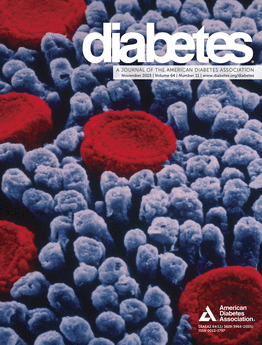Researchers funded by the Canadian Institutes of Health Research (CIHR) and the Canadian Diabetes Association (CDA) have identified an unsuspected role of a protein named SHP-1 that could constitute a new therapeutic path against Type 2 Diabetes.
Under the direction of professor Andr� Marette (Laval University), Nicole Beauchemin (McGill University), Martin Oliver (McGill University Health Centre) and Katherine Siminovitch (University of Toronto) were part of a Canadian and American team which published an article in the May issue of Nature Medicine that explains the role of SHP-1 in the control of blood glucose.
The researchers already knew that SHP-1 played a role in regulating the immune system. However, no one had previously taken the time to verify if this protein was involved in the regulation of metabolism. This is precisely what this team of Canadian and American researchers did, thanks to a series of mutant or genetically modified mice producing little or no SHP-1.
"Our results indicate that these mice are extremely sensitive to insulin and, consequently, they are very effective in metabolising glucose at the level of the liver and the muscles," notes Andr� Marette. In addition, the researchers highlighted that SHP-1 inhibits the decomposition of insulin by the liver. "This could explain the increase in the insulin concentrations of certain metabolic disorders associated with obesity," indicates the researcher.
"The results of Andre Marette and his team represent an important step in the development of a new therapeutic approach in the fight against diabetes. Advances in the treatment of diabetes are needed to improve the lives of the more than two million Canadians already affected by it and the many more who will develop the disease in the years to come. The study is a perfect example of the potential benefits of investing in health research," says Dr. Diane Finegood, based in Vancouver and Scientific Director of the CIHR Institute of Nutrition, Metabolism and Diabetes.
Continue Reading Below ↓↓↓
"By inhibiting the activity of SHP-1, it would perhaps be possible to restore better control of blood glucose," suggests professor Marette. The difficulty, however, is to reach that point without blocking the essential part played by this protein in the immune system. The SHP-1 protein is present in humans, but its role in the regulation of the metabolism of glucose and in the development of Type 2 Diabetes remains to be shown.
"Good glucose control is essential for managing diabetes and preventing the debilitating complications associated with diabetes," says Dr. Paula Dworatzek, Senior Research Associate, Canadian Diabetes Association. "We congratulate Dr. Marette and his team for these initial findings, which will pave the way for his team and others to pursue a potential new therapy in the management of diabetes."
Source: Canadian Institutes of Health Research











